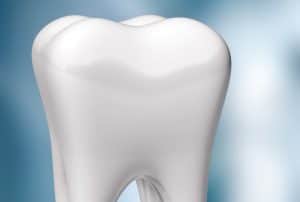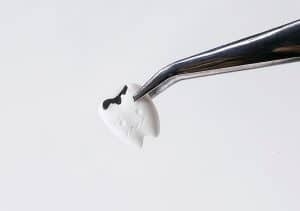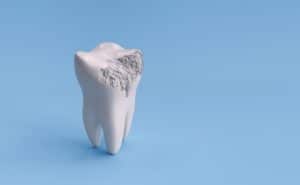 The good news about improving your smile with cosmetic dental treatment is that, in many cases, the blemishes that affect your smile can be easily and conveniently corrected. Yet, sometimes, smile improvement can seem more complex, especially if you have several different types of tooth blemishes to deal with at once. Fortunately, porcelain veneers can often address a multitude of issues with one or more of your teeth all at once, and in a minimally invasive manner. Today, we take a look at why porcelain veneers are often recommended for improving smiles, and the advantages they can provide for both your smile’s appearance and your overall oral health. (more…)
The good news about improving your smile with cosmetic dental treatment is that, in many cases, the blemishes that affect your smile can be easily and conveniently corrected. Yet, sometimes, smile improvement can seem more complex, especially if you have several different types of tooth blemishes to deal with at once. Fortunately, porcelain veneers can often address a multitude of issues with one or more of your teeth all at once, and in a minimally invasive manner. Today, we take a look at why porcelain veneers are often recommended for improving smiles, and the advantages they can provide for both your smile’s appearance and your overall oral health. (more…)
Can Bonding a Tooth Really Fix It?
 When many patients consider bonding for their tooth, it’s often out of a cosmetic need to improve the tooth’s overall appearance. With its highly customizable appearance, the composite resin that’s used for cosmetic tooth bonding can offer highly lifelike results for improving your tooth in a minimally invasive manner. However, the many different advantages that come with tooth bonding can also impact the overall health and integrity of your tooth in several beneficial ways. (more…)
When many patients consider bonding for their tooth, it’s often out of a cosmetic need to improve the tooth’s overall appearance. With its highly customizable appearance, the composite resin that’s used for cosmetic tooth bonding can offer highly lifelike results for improving your tooth in a minimally invasive manner. However, the many different advantages that come with tooth bonding can also impact the overall health and integrity of your tooth in several beneficial ways. (more…)
Treating Common Dental Emergencies
 When a dental emergency occurs, it isn’t always what you would expect. For example, some dental emergencies don’t seem like emergencies at first, or the problem may not seem as severe as it actually is. The good news is that, for most common dental emergencies, recovering from the condition can often be a simpler and more conservative process than you might expect. Today, we examine a few treatments designed to address some of the most common dental emergencies, and why seeking treatment as soon as possible is essential to overcoming them. (more…)
When a dental emergency occurs, it isn’t always what you would expect. For example, some dental emergencies don’t seem like emergencies at first, or the problem may not seem as severe as it actually is. The good news is that, for most common dental emergencies, recovering from the condition can often be a simpler and more conservative process than you might expect. Today, we examine a few treatments designed to address some of the most common dental emergencies, and why seeking treatment as soon as possible is essential to overcoming them. (more…)
Could Tooth Loss Lead to Even More Problems?
 For many people who experience tooth loss, it’s the result of a chronic oral health concern that’s grown severe, such as gum disease. Because of this, tooth loss can often seem like the worst thing that can occur because of the condition. However, in many ways, losing a tooth is only the beginning of many other oral health concerns that can have an increasingly more serious affect on your smile. From the health of your remaining teeth to the balance and integrity of your overall bite function, tooth loss can become more problematic than you realize at first. Today, we examine a few of the problems that might result from tooth loss if you don’t address it promptly, preferably with a dental implant-supported restoration. (more…)
For many people who experience tooth loss, it’s the result of a chronic oral health concern that’s grown severe, such as gum disease. Because of this, tooth loss can often seem like the worst thing that can occur because of the condition. However, in many ways, losing a tooth is only the beginning of many other oral health concerns that can have an increasingly more serious affect on your smile. From the health of your remaining teeth to the balance and integrity of your overall bite function, tooth loss can become more problematic than you realize at first. Today, we examine a few of the problems that might result from tooth loss if you don’t address it promptly, preferably with a dental implant-supported restoration. (more…)
When Is Tooth Extraction an Appropriate Option?
 The good news for most patients who develop tooth decay, or experience a broken or fractured tooth, is that there’s often a way to successfully save the tooth with a custom-designed restoration. However, tooth damage, decay, and other compromising situations can sometimes be more severe than a custom restoration can address. To avoid allowing the tooth to continue threatening your oral health, tooth extraction might be an appropriate option. Today, we examine a few conditions that might warrant tooth extraction, and why removing the tooth could be a benefit to your smile and oral health. (more…)
The good news for most patients who develop tooth decay, or experience a broken or fractured tooth, is that there’s often a way to successfully save the tooth with a custom-designed restoration. However, tooth damage, decay, and other compromising situations can sometimes be more severe than a custom restoration can address. To avoid allowing the tooth to continue threatening your oral health, tooth extraction might be an appropriate option. Today, we examine a few conditions that might warrant tooth extraction, and why removing the tooth could be a benefit to your smile and oral health. (more…)
A Closer Look at the Decay in Your Tooth
 Many people recognize that tooth decay can be a significant threat to their oral health. However, knowing of the threat and recognizing it when you have tooth decay aren’t always the same. Unfortunately, underestimating the seriousness of tooth decay is a common reason why it’s allowed to progress so significantly for many people. To help you avoid more significant problems with your oral health, we take a closer look at the decay in your tooth, and why addressing it as soon as possible is important to the immediate and long-term health of your smile. (more…)
Many people recognize that tooth decay can be a significant threat to their oral health. However, knowing of the threat and recognizing it when you have tooth decay aren’t always the same. Unfortunately, underestimating the seriousness of tooth decay is a common reason why it’s allowed to progress so significantly for many people. To help you avoid more significant problems with your oral health, we take a closer look at the decay in your tooth, and why addressing it as soon as possible is important to the immediate and long-term health of your smile. (more…)
What to Do When a Tooth Breaks
 Sometimes, dental health concerns aren’t exactly obvious. For instance, if you develop tooth decay or gum disease, you might not notice it right away, and therefore, you may not realize that you need treatment for it. However, when a tooth breaks, the damage is usually noticeable, and you may likely know the moment it happens. Today, we explain why a broken tooth is such a serious concern for your oral health, and what you can do to maximize your chances of successfully saving the tooth. (more…)
Sometimes, dental health concerns aren’t exactly obvious. For instance, if you develop tooth decay or gum disease, you might not notice it right away, and therefore, you may not realize that you need treatment for it. However, when a tooth breaks, the damage is usually noticeable, and you may likely know the moment it happens. Today, we explain why a broken tooth is such a serious concern for your oral health, and what you can do to maximize your chances of successfully saving the tooth. (more…)
Do Tooth-Colored Fillings Work Better, Too?
 For patients who experience cavities (a product of tooth decay), the most common treatment is often to clean and fill the cavity with biocompatible material. These days, that material often consists of composite resin, which can be tinted to match the color and shade of your tooth structure, unlike metal fillings. In addition, to their more lifelike appearance, tooth-colored fillings also benefit your tooth and oral health in several other, less visible ways, and can also improve the long-term health and integrity of your tooth. (more…)
For patients who experience cavities (a product of tooth decay), the most common treatment is often to clean and fill the cavity with biocompatible material. These days, that material often consists of composite resin, which can be tinted to match the color and shade of your tooth structure, unlike metal fillings. In addition, to their more lifelike appearance, tooth-colored fillings also benefit your tooth and oral health in several other, less visible ways, and can also improve the long-term health and integrity of your tooth. (more…)
Can an Oral Appliance Help You Sleep Better?
 Many people who snore chronically aren’t aware that there may be a chronic underlying condition causing it. Obstructive sleep apnea, which is a common sleep breathing disorder, often causes repeated snoring every night, but the noise is only part of the problem. If you have sleep apnea, then snoring is only a precursor to a more severe obstruction of your airway, which can cause you to stop breathing altogether as you sleep. Today, we examine how a custom-designed sleep apnea appliance may help you address your snoring and sleep apnea problem so you can enjoy the peaceful, restful sleep that you need. (more…)
Many people who snore chronically aren’t aware that there may be a chronic underlying condition causing it. Obstructive sleep apnea, which is a common sleep breathing disorder, often causes repeated snoring every night, but the noise is only part of the problem. If you have sleep apnea, then snoring is only a precursor to a more severe obstruction of your airway, which can cause you to stop breathing altogether as you sleep. Today, we examine how a custom-designed sleep apnea appliance may help you address your snoring and sleep apnea problem so you can enjoy the peaceful, restful sleep that you need. (more…)
Bruxism, TMJ Disorder, and Your Bite’s Ability to Function
 Making sure your smile stays healthy doesn’t often require much. For the most part, being sure to consistently brush and floss your teeth every day can help you largely prevent the plaque and tartar buildup that leads to conditions like tooth decay, gum disease, and more. However, not every part of your oral health is always in your full control, and not every problem that could threaten is as easily preventable as tooth decay and gum disease. Today, we take a look at two conditions that can affect your bite’s function – bruxism and TMJ disorder – and why addressing them may be just as important to your oral health as sticking to good hygiene principles. (more…)
Making sure your smile stays healthy doesn’t often require much. For the most part, being sure to consistently brush and floss your teeth every day can help you largely prevent the plaque and tartar buildup that leads to conditions like tooth decay, gum disease, and more. However, not every part of your oral health is always in your full control, and not every problem that could threaten is as easily preventable as tooth decay and gum disease. Today, we take a look at two conditions that can affect your bite’s function – bruxism and TMJ disorder – and why addressing them may be just as important to your oral health as sticking to good hygiene principles. (more…)


